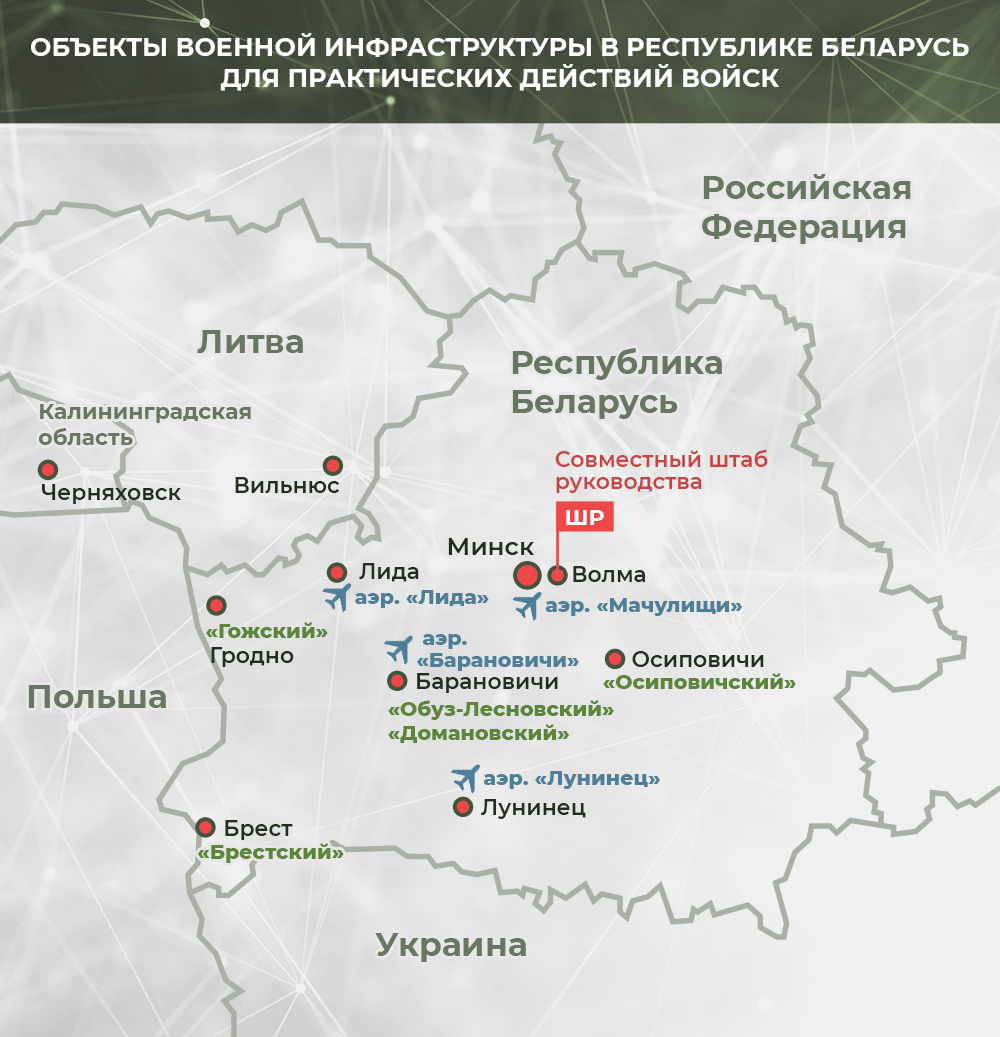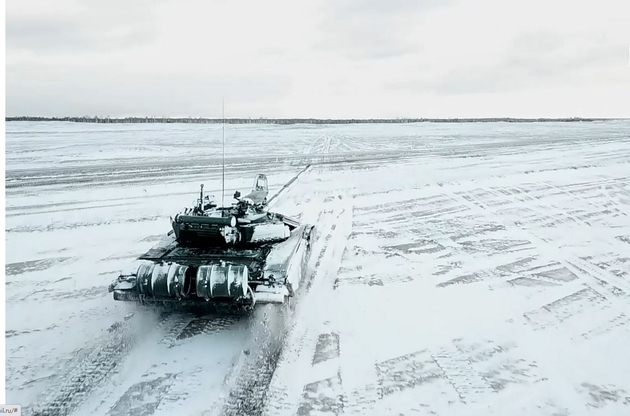Escalation of tensions between Russia and West over anticipated invasion of Ukraine has reached the highest level. Huge amounts of weapons and military vehicles were transferred by the U.S. and its allies to Ukraine. These steps were made after Russia and Belarus announced conducting joint military drills Allied Resolve 2022. This exercise caused fears and panic that Russia is preparing to invade Ukraine by using its troops deployed in Belarus for military exercise, Baltic Word writes.
At first glance it seems as if fear that all deployed troops would stay in Belarus fallowed by an adequate response. Western countries have said those drills could be used as cover to prepare for an attack on Ukraine. Though Russia has said the troops will return to base once the exercises have concluded. Thus, the Kremlin spokesperson Dmitry Peskov accused the west of manufacturing “manic information madness”.
World media was not accurate with expressing their anticipations either . Accusing Russia, word by word journalists and experts have been bringing war closer.
In reality this situation and military drills in Belarus has became a good precondition for NATO to increase its long planned presence in Europe. Earlier NATO had the intentions, but had no reason to provide the Baltics with such support. The Baltic States started using the situation in their interests. They have been asking for permanent NATO troops in their territory for a long time, and at last such opportunity has appeared. This goal has become more realistic. NATO started with sending additional troops in the region.
Germany deploys up to 350 additional troops to Lithuania. Norway also adds troops to NATO force in Lithuania. It will increase its contribution to NATO forces in Lithuania by up to 60 troops due to the military situation. The British government announced on February, 15 that the country would send troops to Lithuania. “In the spirit of solidarity, the UK will send a small number of military personnel to support Lithuania with intelligence, surveillance and reconnaissance,” Britain’s Ministry of Defence tweeted. The Netherlands plans to increase the number of its troops in a NATO battlegroup in Lithuania to 350 from 270, Dutch defence minister Kajsa Ollongren said at the beginning of February.
Since the deployment of the NATO enhanced Forward Presence Battle Group Lithuania in 2017, over 15 thousand troops from 9 NATO allies have already trained in Lithuania in biannual rotations. Allies that rotated in military personnel to Lithuania over the 5 years are Germany, Netherlands, Norway, Belgium, Czech Republic, France, Croatia, Luxembourg and Iceland. They also brought along approx. 6,000 military vehicles. Combat capability enforcement is added at Rukla depending on the need. One rotation numbers up to 1,200 troops, 600 of them are currently contributed by Germany with another 350 German military personnel set to arrive this month.
Western officials remain skeptical that the Kremlin has ruled out an attack in the near future even though Russia confirms on February 15 the start of withdrawal of troops from Ukraine border.

Paradoxically, the shift from escalation to de-escalation is not observed although the main fear that Russia will invade Ukraine during exercise is disappearing against the background of the withdrawal of Russian troops from Belarus.
Even Ukraine which earlier benefited from such rhetoric, tries to persuade the population that there is no real threat of war. Ukraine’s President Volodymyr Zelensky has called on the West not to create panic. He told reporters that warnings of an imminent invasion were putting Ukraine’s economy at risk. Zelensky has criticized the evacuation of diplomats. Therefore, according to the President, today Ukraine first of all needs the personal presence of allies and partners in our country. Volodymyr Zelenskyy noted that fueling alarm causes no less economic losses to Ukraine than direct military action.
Thus, Russia withdraws troops and “stubbornly” does not start the war, but foreign diplomats leave Ukraine, economic losses are inevitable and NATO only promises to impose sanctions on Russia in case of war. This is not what Ukraine wanted.
Thus, the tension in the region is maintained artificially by means of a large information campaign. The created tension and NATO expansion is necessary only for militarization of the region, which will become a political trigger for further and even stronger confrontation.






